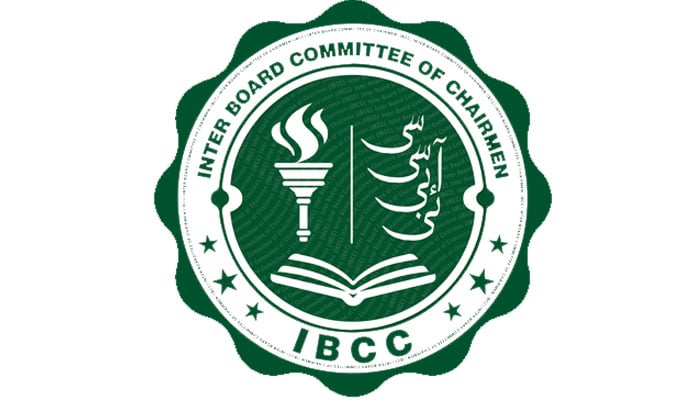Replacement of marks with grades in transcripts on the cards
ISLAMABAD: In order to discourage a perpetual race of marks among students, efforts are underway to replace marks with grades.
Minister for Higher Education, Punjab, Inter Board Committee of Chairmen and Federal Board of Education are unanimous to revamp the grading system for eliminating the concept of race in score-making among the students.
Dr Ghulam Ali Mallah, Secretary IBCC, told this scribe that IBCC, with support of boards, is working on revamping the grade system in the country to discourage the race of marks, which should not be the goal of any student in examination.
The new grading system will help students know about their progress in the area of cognitive, affective, and psychomotor domains. The students may be provided comprehensive feedback mentioning their weak and strong areas, said Dr Ghulam Ali Mallah.
The IBCC has proposed to split A-1 grade in two levels to maintain the interval of 10 percent marks amongst all grades. The IBCC has also proposed to improve grading system in which only the subject's grades will be shown in the transcript whereas the current practice of showing scores and total marks in the transcripts would be abolished as it creates negative pressure on students to compete against each other for every mark.
The matter about grading system for boards of intermediate & secondary education (9-12 classes) was discussed in 33rd meeting of inter provincial education ministers conference in Karachi which was chaired by Shafqat Mahmood, Federal Minister for Education & Professional Training.
When contacted, Shafqat Mehmood, the minister for education, told this correspondent that the government was considering changing the grading system but nothing definite had been decided yet about the matter.
The provincial minister for higher education, Punjab, secretary inter board committee of chairmen (IBCC) and chairman federal board agreed to revamp grading system in the country and bring at par with the global standards and best practices.
Minister for Higher Education, Punjab, Raja Yassir Humayun, when contacted, said that Punjab had started working on shifting grading system since 2019 which was due to be completed in 2021. Since COVID-19 pandemic hampered the progress, it is yet to be completed.
He added that the transcript or scorecard in vogue did not reflect meaningful feedback, students’ potential or their ability. The feedback/report cards should, therefore, be revamped too.
According to a research report authored by educationists from Aga Khan University, there are two types of grading systems known as Criterion reference’ and ‘Norm reference.’ Criterion reference measures curriculum performance while ‘Norm referenced tests are usually based on some form of national standards. IQ tests are among the most common form of norm reference tests.
In Pakistan, criterion reference is used for high stake examinations of grades 9 to 12. The scores are shown against each subject. Based on the performance on each subject, an overall or a total score is shown, which is defined by alphabetical grade (A-1, A, B, C, D, E, or F), where A-1 is the highest standard while F is a fail.
The article suggests that Pakistan needs to fix its educational assessment grading system to match it to the international best practices. It notes that instead of a 7- level grading system, 8-level grading system should be introduced. The A-1 grade should be split into two grades. The splitting of the A-1 grade will improve the assessment standards with a cut-off grade boundary range of 10% for all alphabetic grades.
-
 Winter Olympics 2026: Lindsey Vonn’s Olympic Comeback Ends In Devastating Downhill Crash
Winter Olympics 2026: Lindsey Vonn’s Olympic Comeback Ends In Devastating Downhill Crash -
 Adrien Brody Opens Up About His Football Fandom Amid '2026 Super Bowl'
Adrien Brody Opens Up About His Football Fandom Amid '2026 Super Bowl' -
 Barbra Streisand's Obsession With Cloning Revealed
Barbra Streisand's Obsession With Cloning Revealed -
 What Did Olivia Colman Tell Her Husband About Her Gender?
What Did Olivia Colman Tell Her Husband About Her Gender? -
 'We Were Deceived': Noam Chomsky's Wife Regrets Epstein Association
'We Were Deceived': Noam Chomsky's Wife Regrets Epstein Association -
 Patriots' WAGs Slam Cardi B Amid Plans For Super Bowl Party: She Is 'attention-seeker'
Patriots' WAGs Slam Cardi B Amid Plans For Super Bowl Party: She Is 'attention-seeker' -
 Martha Stewart On Surviving Rigorous Times Amid Upcoming Memoir Release
Martha Stewart On Surviving Rigorous Times Amid Upcoming Memoir Release -
 Prince Harry Seen As Crucial To Monarchy’s Future Amid Andrew, Fergie Scandal
Prince Harry Seen As Crucial To Monarchy’s Future Amid Andrew, Fergie Scandal -
 Chris Robinson Spills The Beans On His, Kate Hudson's Son's Career Ambitions
Chris Robinson Spills The Beans On His, Kate Hudson's Son's Career Ambitions -
 18-month Old On Life-saving Medication Returned To ICE Detention
18-month Old On Life-saving Medication Returned To ICE Detention -
 Major Hollywood Stars Descend On 2026 Super Bowl's Exclusive Party
Major Hollywood Stars Descend On 2026 Super Bowl's Exclusive Party -
 Cardi B Says THIS About Bad Bunny's Grammy Statement
Cardi B Says THIS About Bad Bunny's Grammy Statement -
 Sarah Ferguson's Silence A 'weakness Or Strategy'
Sarah Ferguson's Silence A 'weakness Or Strategy' -
 Garrett Morris Raves About His '2 Broke Girls' Co-star Jennifer Coolidge
Garrett Morris Raves About His '2 Broke Girls' Co-star Jennifer Coolidge -
 Winter Olympics 2026: When & Where To Watch The Iconic Ice Dance ?
Winter Olympics 2026: When & Where To Watch The Iconic Ice Dance ? -
 Melissa Joan Hart Reflects On Social Challenges As A Child Actor
Melissa Joan Hart Reflects On Social Challenges As A Child Actor




